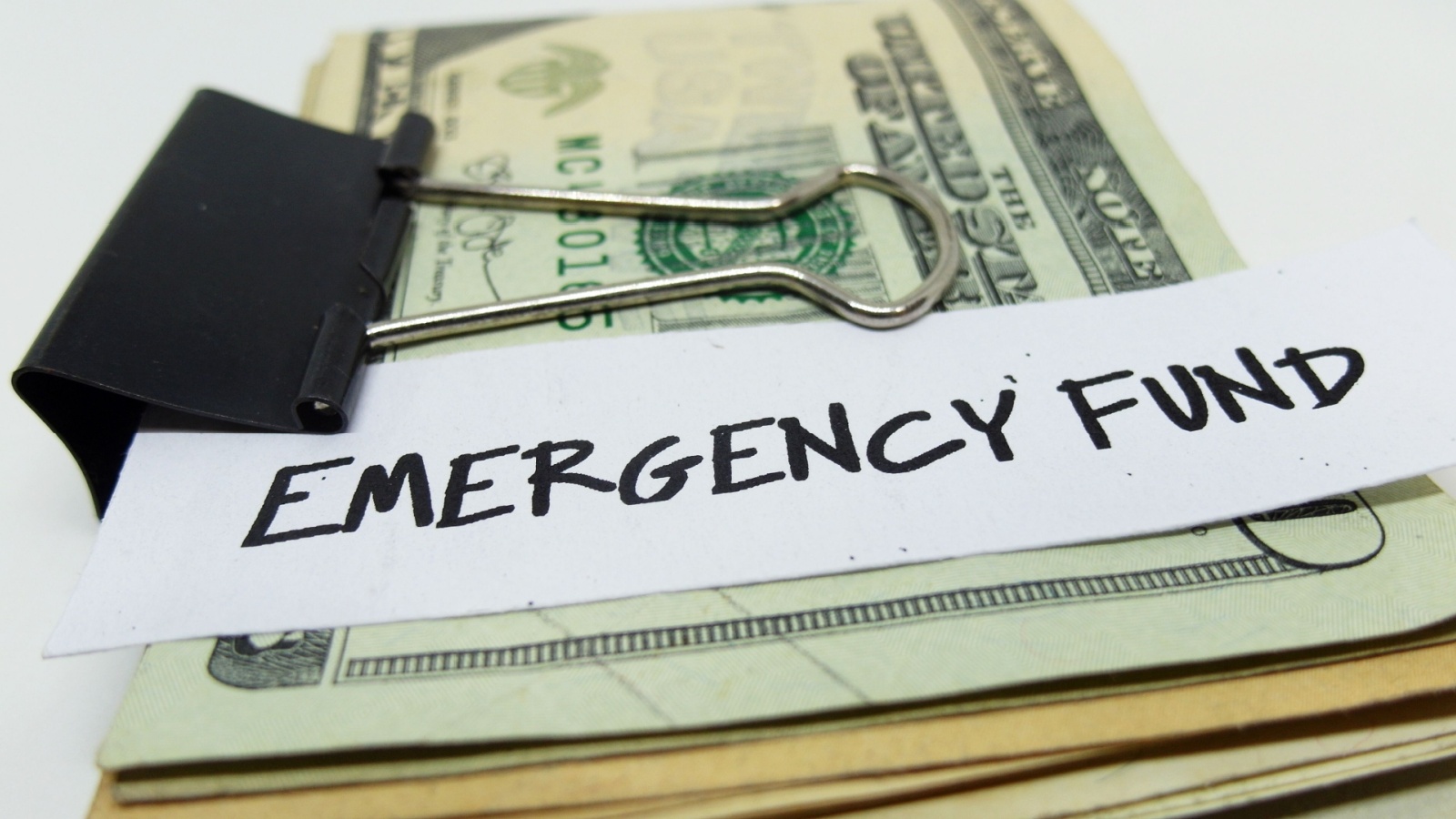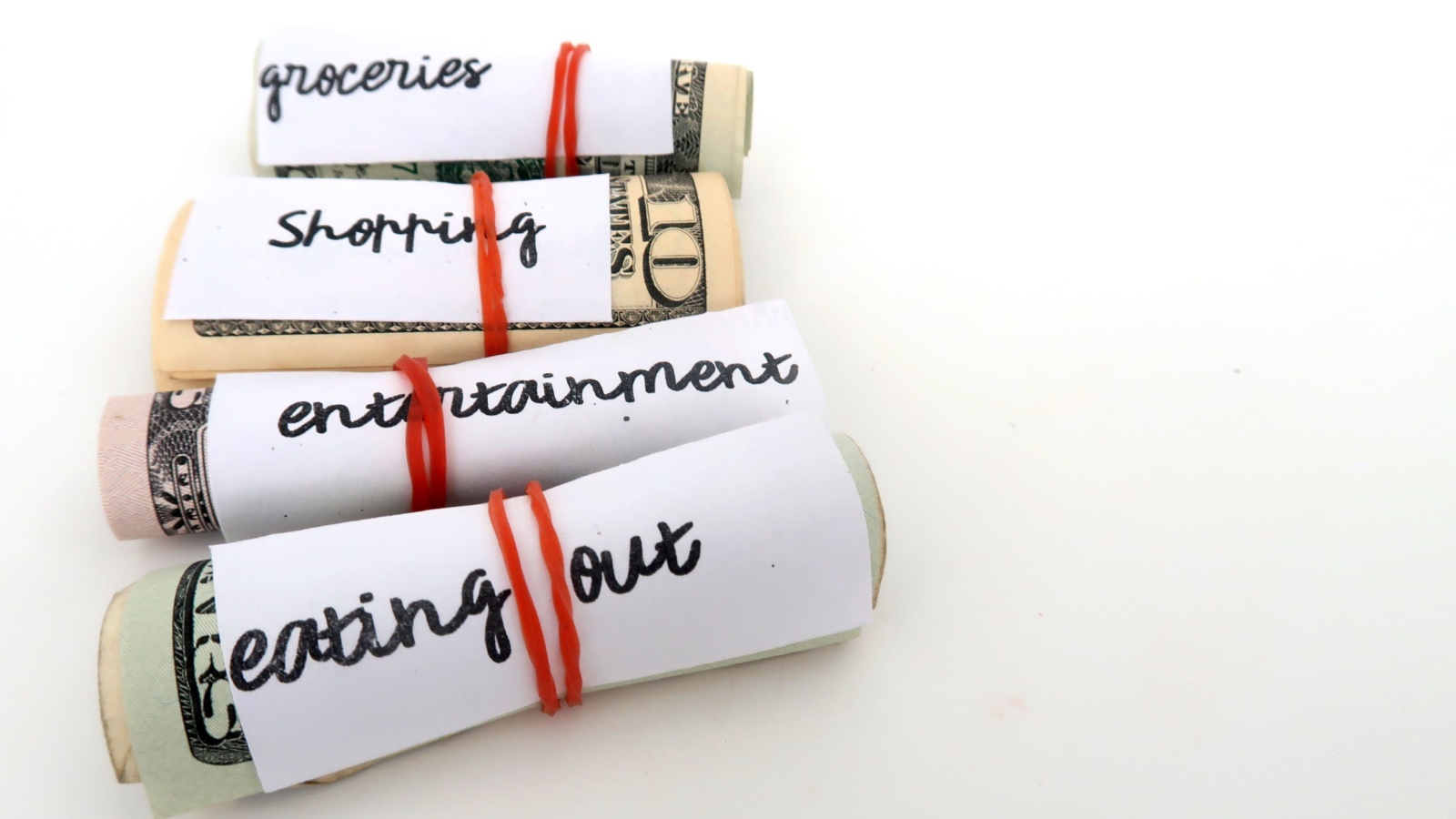A recession often leads to job losses, reduced income, and rising living costs, making it crucial to strengthen your finances. Preparing early can help you manage expenses, safeguard savings, and reduce debt when uncertainty arises. Building resilience ensures you remain financially stable regardless of market conditions. Here are 21 ways to bulletproof your finances in a Canadian recession.
Build a Six-Month Emergency Fund

Creating an emergency fund is one of the most reliable ways to stay financially secure during a recession in Canada. Financial experts recommend saving at least six months’ worth of essential living expenses, including rent or mortgage, utilities, groceries, and transportation. This fund helps you manage unexpected job loss, medical costs, or reduced income without relying on credit. Start by setting aside a fixed percentage of your monthly income into a high-interest savings account.
Pay Off High-Interest Credit Card Debt

High-interest credit card balances can quickly drain your finances during a Canadian recession. Interest rates on most credit cards often range between 19% and 22%, making it expensive to carry unpaid balances. Prioritizing repayment of these debts reduces unnecessary interest costs and improves your financial stability. Focus on paying more than the minimum amount each month to eliminate balances faster. Consider using the avalanche method, where the highest-interest debt is cleared first. Becoming debt-free from credit cards strengthens cash flow, increases savings opportunities, and ensures more money is available when times are financially uncertain.
Create a Strict Monthly Budget

A strict monthly budget is essential for managing money during a recession in Canada. Start by tracking all income and expenses to identify where your money is going. Separate needs such as rent, utilities, groceries, and transportation from wants like entertainment and dining out. Allocate a fixed portion for savings, debt repayment, and emergencies. Use budgeting tools or mobile apps to monitor progress and stay disciplined. Reviewing your budget regularly ensures you adjust to changes in income or expenses.
Reduce Non-Essential Spending

Cutting non-essential spending can free up significant funds during a Canadian recession. Review your monthly expenses to identify items you can live without, such as streaming services, frequent dining out, or luxury shopping. Redirect the money saved into your emergency fund, debt repayment, or investments. Small adjustments, like preparing meals at home or using public transport instead of driving daily, can lead to big savings over time. The key is to prioritize needs over wants while maintaining a reasonable quality of life.
Diversify Your Income Streams

Relying on a single income source can be risky in a recession. Diversifying income streams provides stability if one source is reduced or lost. Canadians can explore options such as freelancing, starting an online business, renting out property, or taking part-time remote work. Even small side incomes can strengthen financial security and add to emergency savings. Platforms like Upwork or Shopify make it easier to earn additional income. By creating multiple income channels, you reduce financial vulnerability and increase flexibility.
Refinance or Consolidate Loans

Refinancing or consolidating loans can reduce financial pressure during a Canadian recession. Refinancing involves negotiating a lower interest rate on your mortgage or personal loan, which can save thousands of dollars over time. Loan consolidation allows you to combine multiple debts into a single payment with a lower rate, often through a personal loan or line of credit. Both options help reduce monthly payments and make debt easier to manage. Speak with your bank or credit union to explore available refinancing or consolidation programs.
Focus on Essential Living Expenses

During a Canadian recession, it is important to focus on essential living expenses. These include housing, utilities, food, transportation, and healthcare. Prioritizing these ensures that your basic needs are always met, even if income decreases. Track your spending to separate necessities from non-essentials and adjust your budget accordingly. Consider reducing discretionary expenses to free up money for essentials. For example, shopping for groceries strategically, using energy-efficient practices, and cutting luxury costs can help. By keeping essential expenses covered first, you create financial stability and reduce stress.
Build a Strong Credit Score

A strong credit score is a valuable financial tool during a Canadian recession. Lenders are more cautious in uncertain times, and having a higher score increases your chances of getting approved for loans, mortgages, or refinancing at lower interest rates. Pay all bills on time, reduce outstanding debt, and keep credit utilization below 30%. Regularly monitor your credit report to identify errors and correct them quickly. Responsible credit management demonstrates financial reliability, which can provide better borrowing options when needed.
Negotiate Lower Bills and Contracts

Negotiating bills and contracts can significantly lower your expenses during a recession. Canadians can reduce costs on services such as phone plans, internet, insurance, and gym memberships by contacting providers directly. Many companies are open to offering discounts, loyalty incentives, or flexible payment plans if you ask. Comparing competitors’ rates before negotiating strengthens your position. Additionally, bundling services like internet and television can provide cost savings. By renegotiating regularly, you can prevent overpaying for recurring expenses and free up more money for essentials and savings.
Strengthen Your Retirement Savings (RRSP, TFSA)

Retirement savings should remain a priority even during a Canadian recession. Contributing to Registered Retirement Savings Plans (RRSPs) and Tax-Free Savings Accounts (TFSAs) provides long-term benefits while offering tax advantages. Consistent contributions, even in smaller amounts, ensure your savings continue to grow. Take advantage of employer-matching programs if available, as this adds free money to your retirement fund. Avoid withdrawing from retirement accounts early since it reduces your future security. Using diversified investments within RRSPs and TFSAs can help manage risk during market fluctuations.
Avoid Large Purchases and New Debt

Large purchases and new debt should be avoided during a Canadian recession. Buying vehicles, expensive electronics, or luxury items can put unnecessary pressure on your finances, especially if funded through loans or credit. Interest payments add long-term costs that reduce available savings. Instead, focus on maintaining existing assets and postponing significant expenses until the economy stabilizes. If a purchase is unavoidable, consider exploring affordable alternatives or buying used items to save money. Avoiding new debt ensures greater financial flexibility, prevents unnecessary stress, and allows you to focus resources on essentials, savings, and debt repayment.
Boost Your Job Skills for Security

Improving your job skills can help secure employment during a Canadian recession. Many companies prioritize retaining employees who demonstrate adaptability, efficiency, and updated expertise. Consider enrolling in short online courses, certifications, or training programs in areas relevant to your industry. Government-supported initiatives and affordable platforms such as Coursera or LinkedIn Learning provide accessible options. Expanding your skills also increases your chances of finding new opportunities if your current job is affected. Employers value workers who contribute more effectively, making skill development an investment in stability.
Start a Side Hustle for Extra Income

A side hustle provides additional income and security during uncertain times. Canadians can explore options such as freelance writing, tutoring, e-commerce, food delivery, or digital marketing services. Platforms like Etsy, Upwork, and Uber Eats make it easier to start earning quickly. Side hustles allow you to generate money outside your main job, which can be directed toward savings, debt repayment, or emergency funds. Even modest earnings can make a difference during a recession. Building a side hustle also creates long-term opportunities for financial growth.
Invest in Recession-Resilient Assets

Investing in recession-resilient assets helps protect wealth during economic downturns. In Canada, these typically include utilities, healthcare, consumer staples, and dividend-paying stocks. Such investments usually provide steady returns even when the economy slows. Bonds and Guaranteed Investment Certificates (GICs) also offer lower-risk options for stability. Real estate investments in essential housing markets may remain reliable compared to speculative ventures. Diversification is important, as spreading funds across different asset classes reduces overall risk.
Monitor and Adjust Investment Portfolio

Regularly monitoring and adjusting your investment portfolio ensures you stay aligned with financial goals during a Canadian recession. Market conditions can change rapidly, making it important to rebalance investments. Reduce exposure to high-risk stocks and increase allocations to safer assets like bonds or dividend-paying funds. Reviewing portfolio performance quarterly helps you make timely adjustments. Consulting with a financial advisor can provide tailored strategies based on your risk tolerance and market outlook. Keeping a disciplined approach prevents emotional decisions during market volatility.
Use Cashback and Reward Programs Wisely

Cashback and reward programs can help save money during a Canadian recession when used strategically. Many credit cards and retail programs offer cashback, loyalty points, or discounts on essential purchases such as groceries and fuel. To maximize benefits, focus only on programs that align with your spending habits. Always pay balances in full to avoid interest charges that cancel out rewards. Avoid overspending just to earn points, as this defeats the purpose. Using these programs responsibly allows you to stretch your budget, reduce expenses, and put the savings toward essential needs, debt repayment, or building an emergency fund.
Cut Back on Subscriptions and Services

Subscriptions and recurring services can add unnecessary strain during a recession. Review monthly expenses for items such as streaming platforms, magazines, gym memberships, or premium mobile apps. Cancel services you rarely use and consider switching to free or lower-cost alternatives. Sharing family plans for entertainment or software can further reduce costs. Even small cuts add up, freeing extra funds for essentials or savings. Canadians often underestimate the amount spent on unused subscriptions each year. By evaluating and cutting unnecessary services, you can reduce wasteful spending and redirect those funds to areas that strengthen your financial security.
Build a Stockpile of Essential Goods

Stockpiling essential goods provides stability during a Canadian recession. Focus on non-perishable food, household supplies, and daily necessities that you use consistently. Buying in bulk during sales lowers costs per unit and reduces frequent trips to stores, saving time and money. However, avoid over-purchasing or hoarding, which ties up funds and creates waste. A reasonable stockpile ensures that you have critical items during price hikes, shortages, or sudden income disruptions. Planning ahead allows you to maintain consistency in your daily life while keeping spending predictable.
Take Advantage of Government Support Programs

During a Canadian recession, government support programs can provide valuable relief. Federal and provincial governments often introduce benefits, subsidies, or tax credits to assist individuals and families. Programs such as Employment Insurance (EI), Canada Child Benefit (CCB), or GST/HST credits can help reduce financial pressure. It is important to stay informed about available programs and eligibility requirements by checking official government websites. Applying early ensures timely access to support. These programs are designed to stabilize households and support essential needs.
Save on Housing Costs Where Possible

Housing is often the most significant expense for Canadians, making it crucial to reduce costs during a recession. Renters can negotiate lower rent, seek smaller units, or consider shared accommodations. Homeowners may explore mortgage refinancing to secure lower interest rates and reduce monthly payments. Energy-efficient practices, such as reducing heating or electricity use, can further cut utility bills. Downsizing non-essential housing expenses, like unnecessary renovations, also helps. Careful management of housing costs creates room in your budget for savings and essentials.
Protect Your Insurance Coverage

Maintaining proper insurance coverage is critical during a recession. Health, home, life, and auto insurance protect you from unexpected financial burdens that could otherwise drain savings. Review your policies to ensure they are up to date and provide adequate coverage for your needs. Compare providers to confirm you are not overpaying for premiums. Avoid cancelling essential policies, as a single emergency can lead to overwhelming costs without protection. Consider adjusting deductibles or bundling policies to save money without reducing coverage. Keeping strong insurance safeguards financial stability and ensures you remain protected during uncertain economic conditions.
21 Products Canadians Should Stockpile Before Tariffs Hit

If trade tensions escalate between Canada and the U.S., everyday essentials can suddenly disappear or skyrocket in price. Products like pantry basics and tech must-haves that depend on are deeply tied to cross-border supply chains and are likely to face various kinds of disruptions
21 Products Canadians Should Stockpile Before Tariffs Hit
